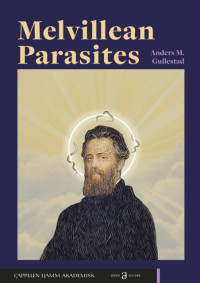Anders Gullestad og Frode Helmich PedersenWhat appears to be Melville’s own theory of the phenomenon of parasitism?
Melvillean Parasites is intended for scholars, students, and general readers with an interest in the concept of the parasite, as well as Herman Melville’s authorship, American literature, and 19 century studies in general.
We all think we know what a parasite is, but do we, really? And what do parasites have to do with literature? These are among the questions addressed in this conversation about parasites and literature, and particularly the parasites found in the writings of Herman Melville, the author of Moby-Dick.
Anders M. Gullestad is Associate Professor at the Department of Linguistic, Literary and Aesthetic Studies at the University of Bergen.
Frode Helmich Pedersen is Professor at the Department of Linguistic, Literary and Aesthetic Studies at the University of Bergen.
Anders M. Gullestad’s Melvillean Parasites is available as an open access book.
Hør Akademisk kvarter i din foretrukne strømmetjeneste, eller søk på «Akademisk kvarter» i podkastappen din og klikk abonner:
Melvillean Parasites
Melvillean Parasites addresses an aspect of Herman Melville’s authorship largely overlooked by previous scholars: the abundance of narrators and characters in his writings in search of food—an aim they typically pursue through sponging off the people they encounter.
Deploying the conceptual figure of the parasite as its primary analytical tool, the book interprets how the dream of a free meal plays out and is given literary form in Typee (1846), “Bartleby, the Scrivener” (1853), “Jimmy Rose” (1855), and The Confidence-Man (1857). In so doing, Melvillean Parasites aims to explain how Melville’s engagement with ethico-political issues concerning nourishment, dependency upon others, hospitality, and responsibility toward strangers, evolved and changed over time. Compared to the tendency of dehumanizing the parasite found in many of his contemporaries, the book claims that what sets him apart, is his insight into the unavoidable parasitic tendencies of us all: Herman Melville—patron saint of the parasite.
Melvillean Parasites is intended for scholars, students, and general readers with an interest in the concept of the parasite, as well as Herman Melville’s authorship, American literature, and 19th century studies in general.
